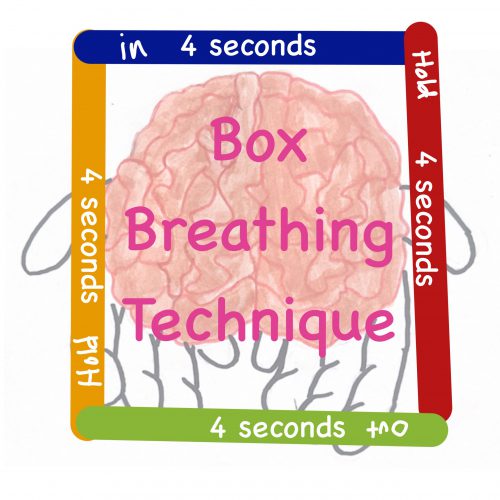Mars Johnson & Sarah Richards|Marlin Chronicle
To promote discussion about mental health struggles faced by young adults, Dr. Fred Scott, a licensed professional counselor, came to share knowledge with the Virginia Wesleyan University campus.
Scott said mental health struggles are on the rise, specifically anxiety disorders, including social anxiety, which he believes can be attributed to the increase in social media usage and the lack of communication skills being developed.
Michelle De Rosa, director of Counseling and Student Health, said that “students are presenting with higher rates of anxiety, depression and trauma-related symptoms, often with greater urgency and complexity. This impacts academic performance, retention, social relationships and overall well-being.”
Scott said younger generations have become reliant on things being online: “during COVID, they became reliant on the way things work on a computer, so when they see somebody in person, they’re reluctant to strike up a conversation.”
Scott expressed a need to get things back in person as much as possible. He said the more in-person interactions people have the less likely people are to become socially anxious. He said this is even more prominent in college students.
“College students are having a harder time connecting with their peers. Some are even getting to the point now where if they want to approach somebody just to say ‘hi,’ they’re literally getting frozen from the anxiety,” Scott said.
The increase in social anxiety also impacts attendance at social events, which creates a cycle of social isolation and avoidance, according to De Rosa: “you don’t feel well, so you don’t want to spend time with others in a community. But then you don’t feel well because you feel isolated from the community.”
Freshman Lina Hackner voiced her international perspective on how America as a country and Virginia Wesleyan as a university advocate for young peoples’ mental health. Hackner, a student from the south of Germany, believes the resources here are readily available and well-advertised.
“I think the stigma around going to counseling in Germany is way bigger. Here, everyone is a little more open about mental health,” Hackner said. In Germany, Hackner said she has never seen free counseling or frequent promotion of organized events in support of young peoples’ mental health.
A difference Hackner noticed was the pressure in college sports here. She believes that an increase in anxiety conditions could derive from the increased pressure felt among student-athletes, specifically from coaches, teammates or the internal need to succeed.
“When you don’t perform well in your sports, it can make you question if you feel good enough in general,” Hackner said.
“Student-athletes have such a busy schedule. I leave my house at 9 a.m. and come back at 9 p.m. I believe that could be a reason as to why mental health is such a big issue in college,” Hackner said.
De Rosa said there’s still a need for more services, advertisement and funding to improve campus-based mental health programs.
Scott spoke to the increase in virtual counseling over the past few years, calling it necessary and effective. He said that while it does not replace in-person counseling, it can be a substitute for those who may lack time or resources for transport.
“You can be anywhere at any time and have an appointment,” Scott said. “It has opened up endless possibilities, you can literally see a therapist anywhere in the world now.”
De Rosa said online platforms can be less effective depending on situational severity. “For complex or crisis-related cases, telehealth might complement, not replace, in-person care,” she said.
“Technology is a double-edged sword,” Scott said. He said in-person meetings allow for a read on visual cues, such as leg bouncing or visible anxiety, that can help with diagnosing students’ conditions. “I don’t think either one trumps the other,” Scott said.
De Rosa said protecting students and providing them with services they need is at the forefront of the university’s values. “We should ensure all students know where and how to access multiple avenues of help (campus crisis line, 988, warm lines, etc), and feel safe to do so by having open discussions frequently,” De Rosa said.
Hackner believes maintaining events around campus and advertising the free counseling will help lessen the stigma around reaching out. Hackner said Virginia Wesleyan’s mental health initiatives help reduce the stigma, and from her experience, there is little stigma on campus already.
She stressed the importance of keeping healthy relationships with athletes and their sports, which good coaching relations can help support. “They should lower the pressure. Obviously everyone wants to perform well, but I don’t think that toxic relationships between coaches and students are healthy in any way,” Hackner said.
To the campus population, Hackner urged them to talk to friends, family and whoever they are closest to. “They want to listen to you. If you’re happy to share your problems with them, then they are happy to listen. Or go upstairs at Batten and go to the counseling room and they will help you. No one will judge you,” Hackner said.
While international students, such as Hackner, describe the resources as a significant improvement compared to those in their home countries, Scott and De Rosa emphasize the need to expand services and accessibility for all students, especially given the increase in mental health struggles for young adults.
By Meena Lennon



